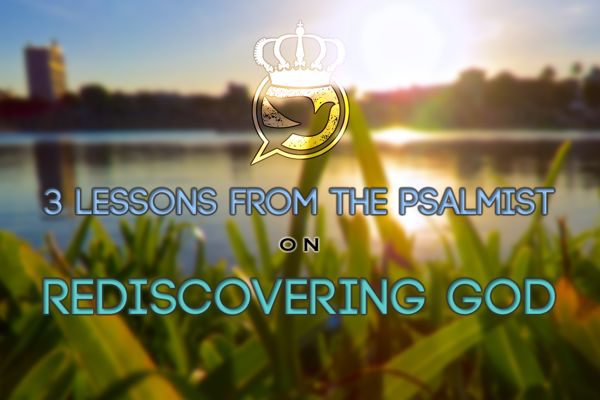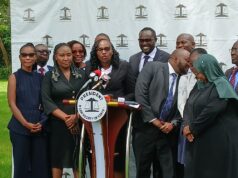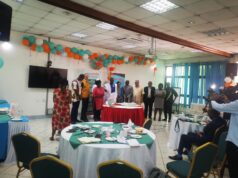It is perhaps the most difficult of the spiritual disciplines to retain: the daily reading of God’s word.It is not that the exercise itself is particularly hard. You simply crack open the pages of scripture and let your eyes roam across the jots and tittles. No, it is not the mechanics of the daily devotion that is so challenging, it is the consistency in discovering our God.
Scripture challenges us. At times, it can be incredibly invigorating, drawing forth a deeper hunger for God’s word that had previously lay dormant. Other times, it assaults us. It exposes our hidden darkness, forcing us to face the areas of ourselves that we keep hidden. And then, there are the moments where it is simply confusing. It can be difficult to draw modern meaning from an ancient text with regularity. To be honest, it can exhaust us. When we become exhausted, the process becomes daunting, and it can be difficult for the exercise to retain the initial passion with which we first engaged it.
The author of Psalm 119 understood this. In the longest single passage in all of scripture, we discover an epic poem that praises the presence of God in scripture. Right around the nineteenth verse, we discover this very interesting phrase:
I live as an alien in the land; do not hide your commandments from me.” (Ps 119:19)
To the Hebrews, the promised land was not property which belonged to them. It was God’s property, upon which they resided as divine tenants. Thus, they would often speak of the Lord’s presence among them and, throughout the Psalms and the rest of scripture, we hear this plea that God not hide His face.
But not here. Here, the plea is different. It is a reference to God’s divine presence being revealed through the scriptures themselves, and it reminds us of two very important things:
- That scripture unveils the presence of God
- That sometimes, God seems to be hidden
So how do we discover this hidden God? Jeremiah promises us that God will, indeed, be found when we seek Him (Jer 29:13), so how do we do that?
Thankfully, this same Psalmist gives us three approaches to rediscovering the face of God.
1. “Open My Eyes, So That I May Behold…” (Ps 119:18)
The most straightforward approach for us in the West is the direct study of scripture. At a scholarly level, we employ methods that involve examining the culture, the language, the context, the genre, and the immediate influences upon the author and intended audience. At a devotional level, we rarely need to go to this depth. Often, this can be as simple as reading a passage and intentionally asking “what does this mean?” In a more guided study, this may utilize the footnotes and cross-references in a study Bible, or even a devotional Bible study itself.
The key to this is intentional observation. We are reading for meaning and information. We are seeking to understand scripture and what it is communicating to us. Many times, we will walk away from such a study with questions. Questions are good, they provide a basis for going deeper.
The process of intentional study helps us to open our eyes, and to behold the things of God.
2. “That I May Live And Observe Your Word” (Ps 119:17)
Closely linked to study is application. It is not enough to simply garner information. As Christians, scripture only comes to hold meaning when it is embodied in our lives. So the Psalmist links these two together: “that I may live and observe.”
When I teach this merging, I borrow a common framework for study and application that has been utilized by many churches in my area. It incorporates journaling into the discipline, and is based on five stages that go by the acronym SOAPY.
- SCRIPTURE: It begins with the simple reading of scripture. Write down the verses to the passage you are going to study, and then read it a few times.
- OBSERVE: What did you observe about the text that particularly stood out to you? What does this mean to you? Write it down.
- APPLY: How does your observation impact your immediate life? How should you respond? Write down how you can apply what you have learned.
- PRAY: Write out a prayer that responds to what you have learned, confesses anything you may need to confess, and asks for strength to apply what you have learned to your life.
- YIELD: This last step is a gut check. Often, we are resistant to change. Is there something that would interfere with your willingness to apply what you have learned? Make the intentional decision to yield that to God.
In living God’s word, we breath life back into the discipline.
3. “Your Servant Will Meditate On Your Statutes” (Ps 119:23)
The third approach the Psalmist gives us is meditation. Meditation to the ancient Hebrews was very different from what we think of today. For many of us, the idea of meditation conjures images of eastern monks chanting in unison or western New-Age philosophers emphasizing the emptying of one’s mind.
Biblical meditation is very different. It is the isolation of a single verse or principle, and the intentional reflection upon that promise. It is like savoring a hard candy, reveling in the different flavors as you turn it over, allowing it to slowly melt in your mouth.
When we meditate upon the promises of God, we return back to it over and over again, reciting it in our mind and keeping it at the forefront of our memory. It is about letting the verse or promise settle into the core of our being.
This is why the Psalmist points to meditation in the midst of turmoil. It is in meditating on God’s promises that we find peace in uncertain times. It sculpts us, shaping us into men and women of God.
Scripture can exhaust us, it is true. The continued mental engagement with a text that can be personally challenging at some times and intellectually grueling at other times can deplete our energy. Ironically, it is also in scripture that we find refreshment. When we learn to modify our approach, we not only discover the replenishment that the word of God offers, but we discover that there is an entire landscape which we have left undiscovered.
And that makes the exercise worth the exploration.




